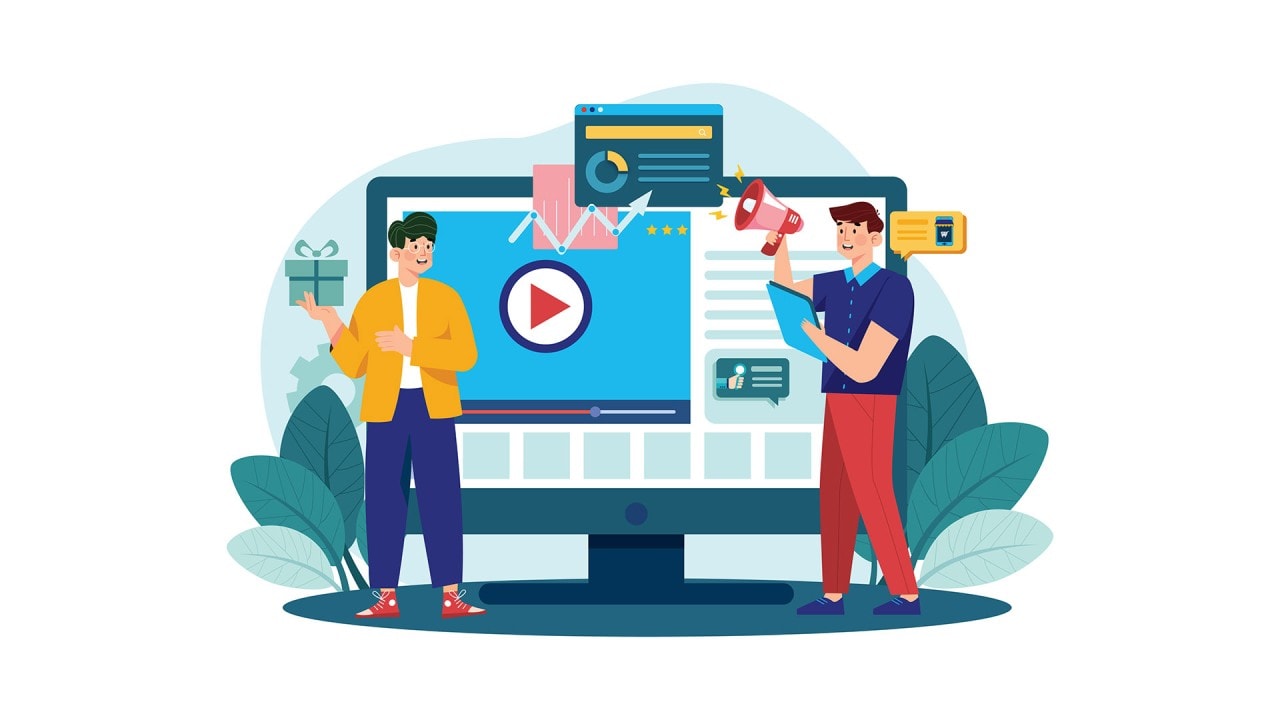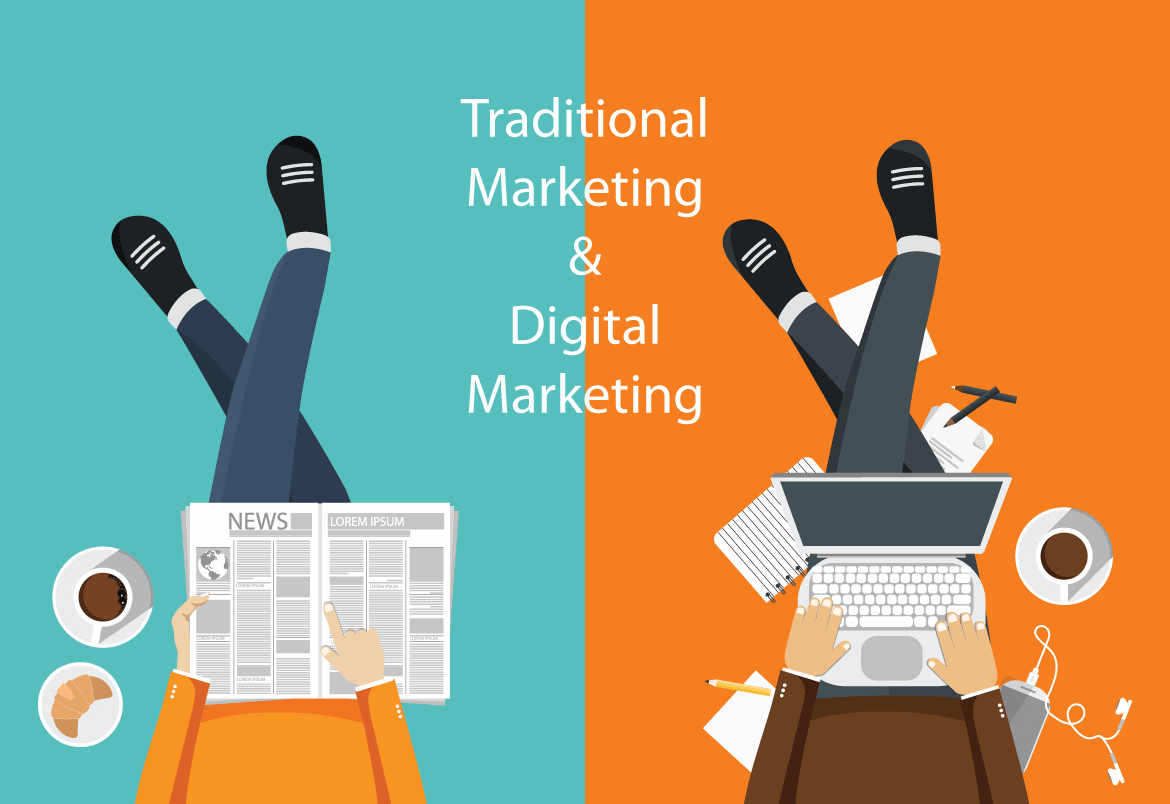A digital marketing agency can be worth its weight in gold when it comes to maximizing your business’s revenues by using numerous different tactics and techniques to acquire, retain, and convert leads into paying clients.
Combining multiple tactics across various channels can create a degree of complexity that your in-house staff might not have the time or expertise to handle effectively.
If you find yourself in a place where you think you can’t afford to outsource to a digital marketing firm, but at the same time you realize that keeping throwing money at digital marketing without seeing tangible results isn’t going to cut it, then it’s time to rethink your marketing strategy and consider bringing in an inbound marketing agency.
It should be understood that money invested in marketing needs to be viewed as an investment, not a cost. Small businesses have lost out immensely in time, money, and missed opportunities.
So, increasingly, they are recognizing the benefit of having an agency that will generate more leads and more income. But how does a marketing agency do that?

Here are some ways a digital marketing agency can help:
1. Building Online Presence
A good online presence is more than wanting to be ranked number one in search engines or having millions of followers on social media platforms, although these are certainly beneficial achievements.
The actual essence of a good digital presence is that when customers search for your business online, they can easily find you.
To have a solid foundation, start with managing the fundamentals: create accounts and listings according to best practices and the search behaviour of your audience.
This is about being present on platforms such as Google My Business, Facebook, LinkedIn, Instagram, and other online destinations where your desired audience also spends time with high frequency.
Effective online marketing agencies can also assist you in creating successful SEO, social media, and PPC ad campaigns for brand building.
Their skills of specialization include engaging your brand through the development of active social communities, targeting appropriately selected keywords relevant to your business, and developing search and user-centric content optimized for various platforms.
Your company can avail itself of the services of a digital marketing agency to develop and maintain a strong online presence. This includes structuring and developing your website, managing your social media presence, and making your brand consistent throughout all digital outlets.
2. Targeted Advertising
Targeted advertising, also known as personalized advertising or audience-specific advertising, is a marketing technique designed to speak to a targeted audience based on various attributes, behaviors, interests, demographics, or other factors.
The goal of targeted advertising is to show interested and relevant ads to the most likely interested individuals or groups with regard to a particular product, service, or message.
This form of advertising relies heavily on data analysis and audience segmentation. Advertisers gather and analyze information from various sources, such as online behavior, past interactions, geographic location, interests, purchase history, and demographic information.
This data is then used to categorize users into provided segments or target audiences. Target advertising is possible through a number of alternative digital media channels like websites, social networking sites, search engines, mobile apps, and email.
You can also read: How to Choose the Right SEO Company for Your Business
Some of the common techniques and examples of targeted advertising are:
- Demographic Targeting: Advertisements directed at groups of users with attributes like age, sex, income, education, and marital status.
- Behavioural Targeting: Advertisements according to users’ online behavior, like websites visited, searched keywords, consumption of content, and interaction with previous advertisements.
- Interest-Based Targeting: Delivering ads to users with a particular interest, hobby, or activity, typically inferred by their web activity.
- Contextual Targeting: Delivering ads on websites or content in line with the topic or subject of the advertisement.
- Geographical Targeting: Delivering ads to users in specific geographic locations or regions.
- Retargeting/Remarketing: Showing ads to users who have already visited your site or interacted with your brand without converting into the intended action (like purchasing something).
- Lookalike/Similar Audience Targeting: Identification and targeting users having similar profiles or behavior to your existing customers.
Targeted advertising can work best because it aims to transmit meaningful messages to the intended group, increasing the likelihood of interaction, conversions, and ultimately, a greater return on investment (ROI) for the advertiser.
However, it is crucial that advertisers respect users’ privacy as well as data protection legislation in place as they undertake target advertising methods.
Online marketing agencies are able to run targeted advertising campaigns, reaching specific audiences based on demographics, interests, behaviours, and so on.
This means that your marketing spend is being well-spent on the most appropriate potential customers.
3. Search Engine Optimization (SEO)
SEO is a critical way of boosting your online presence and website traffic. With Google’s frequent algorithm changes, your SEO process must be monitored closely by your digital partner to be able to respond promptly and prevent any problems like deindexing or ranking drops.
For instance, the mobile-friendly update in 2016 impacted numerous websites that were not mobile user experience optimized.
While keywords, backlinks, and content are the most often emphasized in SEO campaigns, other ranking factors are equally important and comprise site structure, page loading speed, and a responsive web design. Ignoring these could limit the effectiveness of your SEO efforts.
By search engine optimizing your website and content, an online marketing agency can improve your ranking in organic search.
You can also read: Top 5 Reasons to Hire a Digital Marketing Agency
This makes more potential customers see your business when they search for certain products or services, generating more traffic to your site and potential sales.
4. Content Marketing
The development of quality and valuable content can be able to engage and attract prospective customers. Your target audience can be matched by a digital marketing agency with the creation of content that will enhance more brand awareness and trust.
Experienced online marketers are constantly in the loop when it comes to the latest trends and developments that could influence your business.
They also conduct in-depth studies about your market to know the questions your customers ask and what issues they are most concerned with. Based on these facts, such experts craft content that answers your target audience’s specific needs and interests.
Your partner agency must provide useful insights into how users engage with your social media handles and website pages.
They can break down data to test whether or not how-to videos perform higher than on-page blogs, measure the performance of downloadable content based on click generation, and test the level of engagement being driven by your social media updates.
All these types of information are vital to refine your content strategy and make it more appealing and impactful. Most online marketing firms are able to devise an integrated content marketing strategy for each platform, ranging from on-page and off-page to social media and PPC advertising.
With their experience, they can devise content for various platforms, but with uniformity in your brand message. The integrated strategy helps ensure that your content resonates with your audience across all channels.
5. Email Marketing
A proper agency can craft successful email campaigns for customer retention and lead nurture. Targeted and personalized emails can ensure repeat business and the opportunity for upselling.
Email marketing is an internet marketing technique that takes the shape of sending focused messages, promotional emails, updates, or newsletters to a list of prospects or customers via email.
You can also read: How To Retain Your SEO Clients
It is one of the most effective ways of acquiring and retaining readers, developing relationships with them, creating leads, and causing conversion.
Email marketing can be used for a number of reasons:
- Promotions and Offers: Sending exclusive one-time offers, discounts, or special promotions privately to force the recipient to buy or take advantage of limited-time offers.
- Lead Nurturing: Publishing a series of auto-response mailings to lead prospects down the sales pipeline, offering useful information, and solving their problems.
- Newsletters: Send subscribers useful stuff, company news, industry events, and useful updates from time to time.
- Event Invites: Requesting and inviting subscribers to attend company-sponsored webinars, workshops, or events.
- Onboarding: Inviting new customers via welcome emails and giving them the details and resources needed to start using your products or services.
- Abandoned Cart Reminder: Informing abandoned cart customers via email campaigns to induce them to make a purchase.
- Feedback and Surveys: Collect opinions and customer data through email surveys to enhance products or services.
Major benefits of email marketing are:
- Cost-Effective: Email marketing is cost-effective as compared to other forms of marketing, and its return on investment (ROI) is high.
- Personalization: Email marketing allows personalization based on subscriber data so that recipients get personalized and relevant material.
- Automation: Automation software enables marketers to create automated email campaigns based on certain actions or triggers by subscribers.
- Measurable Results: Email marketing software offers comprehensive analytics, enabling marketers to monitor open rates, click-through rates, conversion rates, and other key metrics.
- Wide Reach: With the enormous number of email users globally, email marketing can reach a huge audience.
- Segmentation: Email lists can be segmented by marketers based on multiple factors so that each recipient gets content of relevance and interest to him or her.
To execute a successful email marketing campaign, note that delivering relevant content, having a clean and fresh list of emails, abiding by the applicable data protection law (like GDPR), and testing various aspects of an email for improved performance are crucial.
6. Conversion Rate Optimization (CRO)
Conversion Rate Optimization (CRO) is a systematic method of increasing the proportion of site visitors which perform the desired action and is referred to as “conversion.”
Any of the conversions, such as purchasing, subscribing to the newsletter, filling out forms, or anything else appropriate to the intended objectives of the site, can be done.
The overall purpose of CRO is to optimize the website user’s experience so that the site becomes more interactive and welcoming to use, encouraging visitors to perform the desired action.
In correlation with observing user behavior, tests, and data-based alterations, CRO seeks to remove barriers and friction points that may stifle conversions.
You can also read: Site Optimization Tips for eCommerce in 2025
A digital marketing agency can analyze user behavior on your site and make data-driven changes to boost the conversion rate. Streamlining your website’s design and user experience will allow more visitors to be converted into customers.
7. Social Media Marketing
Social Media Marketing (SMM) is a web marketing strategy whereby social media platforms are used to promote products, services, or content and engage target consumers.
It leverages the power of social media networks to drive brand awareness, website traffic, lead generation, and establish strong customer relationships.
The most commonly used social media platforms that are commonly used for marketing include Facebook, Instagram, Twitter, LinkedIn, Pinterest, TikTok, and YouTube, among others.
Key features of Social Media Marketing:
- Content Creation and Sharing: SMM is all about sharing and creating various types of content such as images, videos, articles, infographics, and interactive posts to get the attention of and engage with the target audience.
- Interaction and Engagement: SMM is about active interaction with followers through comments, likes, shares, and direct messages. Building and increasing a social media community is needed to generate brand loyalty and customer satisfaction.
- Paid Social Ads: Apart from organic, social media platforms also offer advertising space to allow companies to reach out to targeted groups based on demographics, interests, behaviors, and so on. Paid social ads can be used to increase reach and drive desired behavior.
- Influencer Marketing: Collaboration with influencers, who have a mass following and wield influence in a specific niche, can extend the reach and credibility of the brand to the masses.
- Social Media Analytics: Monitoring social media analytics and metrics is necessary in order to measure the performance of the campaigns, understand audience behavior, and make data-driven decisions for future marketing campaigns.
Advantages of Social Media Marketing:
- Brand Awareness: SMM enables businesses to reach a massive and diverse audience, generating brand visibility and awareness.
- Audience Engagement: Interactive connections with followers build a sense of community, loyalty, and brand advocacy.
- Targeted Advertising: Social network sites provide sophisticated targeting features, ensuring that advertising messages are conveyed to the most appropriate audience.
- Cost-Saving: SMM can be cost-effective, particularly in comparison with the expense of traditional advertising.
- Immediate Communication: Social media provides immediate communication with customers, allowing businesses to respond to questions and comments in a timely fashion.
- Customer Information: Social media monitoring tools allow businesses to obtain useful customer information and comments to upgrade products or services.
- Viral Marketing Potential: Shareable and engaging content can be viral in potential, lifting reach and exposure exponentially.
Social Media Marketing is a living and constantly changing discipline, prompting businesses to remain up-to-date with platform releases, user behavior, and best practices in order to take full leverage of its potential on their overall marketing plan.
You can also read: Conversion of HTML to PDF: 4 Benefits You Need to Know
Communicating with your customers on social media websites can generate brand loyalty and customer satisfaction. Social media presence is looked after by a digital agency by responding to customer issues and creating content that resonates well with your consumers.
8. Analytics and Performance Tracking
A digital marketing agency performs an important role in analytics as well as monitoring performance through the application of different instruments and techniques for measuring, analyzing, and monitoring data related to marketing.
Its role in aiding analytics and tracking performance is given below:
- Data Collection and Integration: Digital marketing agencies install and integrate various tracking tools, such as Google Analytics, Facebook Pixel, and other data collection software, to gather information from various sources, such as websites, social media, email marketing campaigns, and ad platforms.
- Defining Key Performance Indicators (KPIs): Together with the client, in close consultation, the agency helps to identify and define the most suitable Key Performance Indicators (KPIs) for the business in accordance with goals and objectives. Examples of such KPIs can be website traffic, conversion, click-through rates, return on investment (ROI), customer acquisition costs, etc.
- Data Analysis and Reporting: Digital marketing companies continuously analyze the data collected from various sources in order to understand the progress of marketing campaigns and strategies. They create detailed reports highlighting the most crucial metrics and providing actionable recommendations for improvements.
- A/B Testing and Experimentation: To enhance performance, digital marketing agencies conduct A/B tests and experiments to quantify the relative performance of different strategies, creatives, and marketing elements. This data-driven approach helps optimize marketing campaigns to deliver better results.
- Attribution Modeling: Attribution modeling is used to understand the contribution of all marketing channels and touchpoints involved in the path to conversions for customers. Digital marketing agencies help in setting and evaluating attribution models to attribute value to the most effective channels.
- Conversion Funnel Analysis: The agency tracks and examines the customer conversion process via the conversion funnel and identifies areas and bottlenecks where they may require improvement. This enables the funnel to be optimized and enhances the overall conversion rate as well.
- Real-Time Monitoring: Digital marketing agencies track campaign performance in real time, thereby enabling them to make quick changes and optimizations where required to provide optimal results.
- Data-Driven Approach: The company creates data-driven marketing strategies from the insights acquired through analytics and performance tracking consistent with the corporate objectives, target market, as well as with industry trends.
- Forecasting and Planning: Historical data and past trends can be used to project future performance, and digital marketing companies can assist in planning for marketing activities in a similar fashion.
Digital marketing agencies utilize analytics and measurement of performance to measure the performance of marketing campaigns, areas where improvements can be made, and data-based decisions that lead to the achievement of business objectives and increased ROI.
Digital marketing agencies use various tools of analytics to track the performance of their campaigns on an ongoing basis. Using data analysis, they are capable of identifying what works best and making the necessary changes accordingly, improving your marketing campaign consistently.
9. Competitor Analysis
A digital marketing agency can be an invaluable asset in competitor analysis, which involves checking and understanding your competitors’ positioning, strategies, strengths, weaknesses, and positioning in the market.
Below are the ways a digital marketing agency helps in competitor analysis:
- Identifying Competitors: The agency researches and determines your key competitors in the online environment. They look at direct competitors (those offering similar products or services) and indirect competitors (those catering to the same target market but with a different product or solution).
- Online Monitoring: Digital marketing agencies use tools and tactics to track the online presence of competitors. They keep tabs on website performance, social media updates, content marketing initiatives, SEO actions and paid advertising campaigns.
- Keyword Analysis: The agency conducts keyword research to observe what the primary terms and phrases your competitors are targeting in their content and paid search advertisements. This is helpful in knowing their priority and what they are concerned about.
- Social Media Analysis: Examining your competitors’ social media accounts can assist the agency in learning about their engagement, content strategy, posting frequency, and overall social media performance.
- Content Analysis: The agency analyzes the content generated by competitors, such as blog articles, videos, infographics, and more. This assists in learning about their content themes, types, and quality, and determining potential gaps in the market.
- Backlink Analysis: The agency evaluates the backlink profiles of your competitors to learn about their link-building processes and determine chances for acquiring links for your own site.
- Advertising Strategies: Competitor advertising campaigns are reviewed by online marketing agencies, such as Google Ads, social media marketing, display advertising, and sponsored content. This provides insight into their promotional, targeting, and message strategy.
- SWOT Analysis: The agency performs a SWOT analysis (Strengths, Weaknesses, Opportunities, Threats) to examine the relative strengths and weaknesses of your business compared to your competitors.
- Benchmarking and Recommendations: The agency benchmarks your performance with the competitors and provides recommendations to improve your digital marketing methods and become competitive on the basis of competitor analysis findings.
You can also read: Is It Required to Hire an Agency to Handle Pay-Per-Click Tasks?
Competitor analysis is an ongoing process because the online space and your competitors’ plans evolve over time. Competitor analysis performed by a digital marketing agency informs you, makes changes to your marketing plan, and makes rational decisions to maintain or grow your market share.
Your competitors’ online presence and plans can be tracked by a digital marketing agency on your behalf, keeping you ahead of the market and making changes to unfolding trends.
10. Mobile Marketing
A digital marketing firm can play a major role in mobile marketing by designing and executing successful marketing strategies that can reach out to mobile consumers.
Mobile marketing is all about reaching and communicating with the audience via mobile devices such as smartphones and tablets.
This is how a digital marketing firm assists in mobile marketing:
- Mobile-Optimized Sites: The agency ensures that your site is fully optimized for mobile usage, providing a seamless and welcoming experience to visitors who access your site from their smartphones or tablets.
- Responsive Design: They implement responsive web design, which adjusts your website automatically to fit different screen sizes and resolutions.
- Mobile Application Development: Where relevant to your business, the agency can assist in developing and promoting a mobile application to engage users maximally and win loyalty from customers.
- SMS Marketing: Digital marketing agencies can create and implement SMS marketing campaigns to send promotional deals, updates, and important information directly to customers’ mobile phones in the form of text messages.
- Mobile Advertising: They design mobile ad campaigns that engage mobile app, mobile website, and other mobile device users through channels like banner advertising, interstitial advertising, and in-app advertising.
- Location-Based Marketing: The agency utilizes location-based marketing techniques to provide context-specific messages or offers to customers based on their location with the help of tools like geofencing and beacons.
- App Store Optimization (ASO): For mobile applications, the company can also optimize listings in the app stores to increase visibility and improve downloads with pertinent keywords, captivating descriptions, and compelling graphics.
- Mobile Search Optimization: They implement measures to put your website on top in mobile search engine results, as increasingly more individuals get active in mobile searches.
- Mobile Analytics: Mobile analytics software is used by digital marketing agencies to track and analyze the behavior, engagement, and conversion of mobile users. This data helps in optimizing marketing campaigns and understanding the experience of the mobile user.
- Mobile Social Media Marketing: They optimize social media marketing campaigns to make them mobile-friendly in order to target and engage mobile users, considering differences in user behavior between desktop and mobile platforms.
- Mobile Payment Solutions: Based on the applicability, the agency can integrate mobile payment solutions into your website or app so that mobile users can make easy transactions.
Mobile marketing is essential nowadays, as mobile phones have turned into a primary means of internet access for a portion of the population.
You can also read: Ways a Virtual Assistant Can Save Your Business Money
Through the guidance of a digital marketing agency, businesses can tap the immense potential of mobile marketing and speak to their mobile-aware audience.
As more and more people make use of mobile phones, an agency that does digital marketing can maximize your advertising for mobile users, hence targeting more people and potentially converting more leads.
Conclusion
By leveraging these and other digital marketing strategies, a competent digital marketing agency can significantly contribute to increasing your company’s revenue and overall success. However, it’s essential to choose the right agency that understands your business goals and has a proven track record of delivering successful digital marketing campaigns.
To summarize, companies like CamRojud play a vital role in bolstering businesses’ online presence and revenue. With a comprehensive suite of online marketing solutions encompassing SEO, conversion rate optimization, PPC, web development, web design, and social media management, these digital marketing agencies help businesses to enhance their online visibility and effectively connect with their target audience.
If you’re seeking assistance to expand your business’s online reach, don’t hesitate to reach out to us. With extensive experience in aiding companies to achieve their business objectives, we are eager to extend our support to your business as well!
Would you like to read more about how IT services can help reduce costs for companies-related articles? If so, we invite you to take a look at our other tech topics before you leave!
![]()











